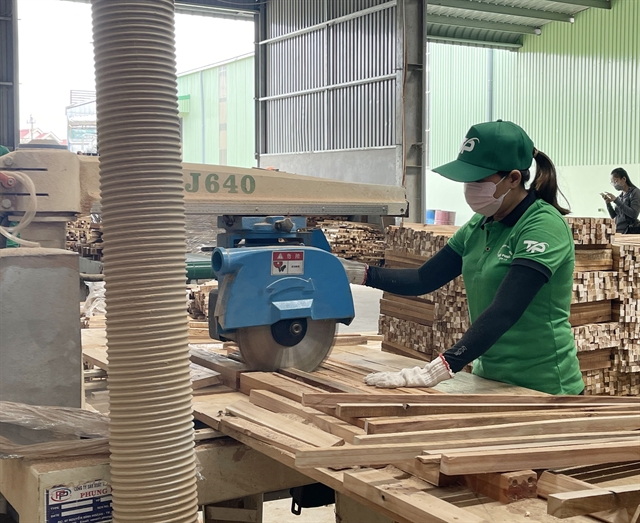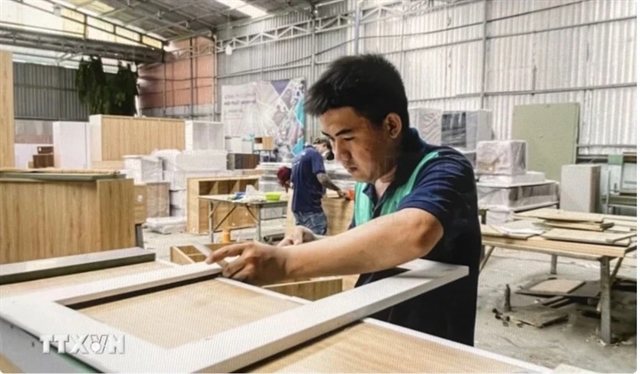 Economy
Economy

 |
| Illustrative image. The exports of wooden products are expected to bring home over $4 billion, up 7.5 per cent compared to the same period last year. — VNA/VNS Photo |
HÀ NỘI — The export value of timber and wood products in Việt Nam is estimated to reach over US$6 billion in the first five months of this year, an increase of 18 per cent over the same period last year, according to General Department of Vietnam Customs.
Notably, the exports of wooden products are expected to bring home over $4 billion, up 7.5 per cent compared to the same period last year.
Tô Xuân Phúc, Managing Director of Forest Trends' Forest Policy, Trade, and Finance Initiative said that Việt Nam’s timber industry will gradually recover in 2024 as demand for the products is increasing.
According to Đỗ Xuân Lập, Chairman of the Vietnam Timber and Forest Products Association, said that Việt Nam is among the top timber exporters in the world. Vietnamese timber reaches 170 countries and territories worldwide, making deeper inroads in key markets like the US, Europe, the Republic of Korea and Japan, and marking greater presence in emerging markets like Middle-East and India.
Lập said that Việt Nam has affirmed its position in the global timber market thanks to its advantages in forestry development, support policies, and accession to free trade agreements.
Moreover, Vietnamese companies are investing in new technology and digital transformation to develop new products and services and increase competitiveness, efficiency and productivity.
However, Việt Nam’s timber industry is also facing many difficulties, especially when major importers have been imposing stricter requirements on origin, green production, reduction of greenhouse gas emissions, and the Carbon Border Adjustment Mechanism (CBAM) - a carbon tariff on carbon-intensive products imported to the European Union (EU).
Last year, the EU adopted a regulation to curb the market's impact on global deforestation and forest degradation around the world, as well as protecting the rights of indigenous people. The EU Deforestation Regulation ("EUDR") mandates extensive due diligence on the value chain for all operators and traders dealing with certain products derived from cattle, cocoa, coffee, oil palm, rubber, soya and wood.
According to this regulation, businesses exporting rubber wood furniture to Europe have 18 months for large companies or 24 months for small and medium companies to prepare to meet the requirements of the EUDR.
Lap added that the internal capacity of Vietnamese businesses is also a limitation as most of them mainly produce following orders and designs of foreign distributors.
Production and export have grown continuously for years but still rely on cheap labour and raw materials, and the added value of products is not high.
He noted that most businesses are small in scale and do not have enough capacity to build brands. Small businesses can be weak in responding to sudden and continuous fluctuations in the market. Vietnamese products are rarely distributed directly to customers but via foreign distribution channels and foreign businesses, Lập added.
Nguyễn Liêm, Chairman of the Bình Dương Furniture Association, said that exports of Vietnamese timber and wooden products to the US increased in the first months of this year, pushing the industry’s growth.
US importers highly value and consider Việt Nam an important timber and wood product supplier in the world, Liêm said, adding that if businesses can make use of this advantage, they can create breakthroughs.
However, focusing too much on a key market is also a weakness, Liêm said, emphasising that Vietnamese timber producers need to diversify markets and increase exports to other potential markets. — VNS




